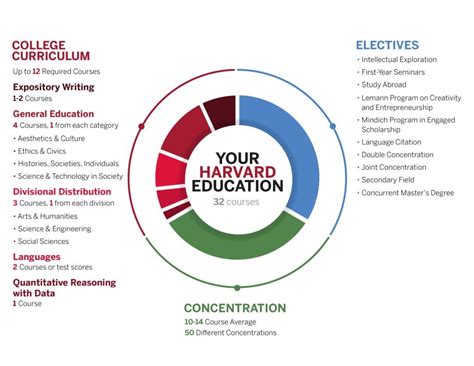Embarking on a college education is an exciting journey that requires meticulous preparation. One crucial aspect of this preparation is familiarizing yourself with the required classes you will encounter throughout your academic tenure. These foundational courses are designed to provide you with a broad knowledge base that will serve as a springboard for your specialized studies and future career endeavors.

Why Required Classes Matter
Cognitive Development: Required classes challenge your critical thinking, problem-solving, and analytical abilities, fostering intellectual growth and enhancing your capacity for complex reasoning.
Interdisciplinary Knowledge: These courses expose you to a wide range of disciplines, broadening your perspective and providing a solid foundation for interdisciplinary collaboration in the workplace.
Communication Skills: Many required classes emphasize written and verbal communication, equipping you with the skills necessary to effectively convey your ideas and collaborate with others.
Essential College Required Classes
English Composition
- Develops foundational writing and critical reading skills essential for effective communication and academic success.
- Typically includes two semesters of writing-intensive courses.
Mathematics
- Provides a strong foundation in mathematical concepts and problem-solving, which are vital in various fields such as science, economics, and computer science.
- Typically includes courses in algebra, calculus, and statistics.
Natural Sciences
- Introduces you to the fundamental principles of biology, chemistry, and physics, fostering an understanding of the natural world and its phenomena.
- Often requires laboratory experiences for hands-on learning.
Social Sciences
- Explores the human experience through disciplines such as sociology, psychology, anthropology, and political science.
- Provides insights into social interactions, cultural diversity, and political systems.
Humanities
- Enhances your critical thinking and cultural literacy through the study of literature, history, philosophy, and art.
- Develops your appreciation for human creativity, expression, and the human condition.
How to Approach Required Classes
Active Participation: Attend class regularly, engage in discussions, and seek clarification when needed.
Organization and Time Management: Develop effective study habits, manage your time wisely, and plan ahead for assignments.
Collaboration: Form study groups, seek help from classmates or professors, and utilize campus resources such as tutoring or writing centers.
Critical Reading: Read assigned texts thoroughly, analyze their arguments, and identify key concepts.
Effective Note-Taking: Develop a system for taking concise and meaningful notes during lectures and readings.
Specific Examples of Required Classes
Table 1: English Composition
| Course | Description |
|---|---|
| English Composition I | Introduces basic principles of writing, grammar, and rhetoric. |
| English Composition II | Develops advanced writing skills, including research, analysis, and argumentation. |
Table 2: Mathematics
| Course | Description |
|---|---|
| College Algebra | Covers fundamental concepts of algebra, including functions, equations, and inequalities. |
| Calculus I | Introduces the fundamental concepts of differential and integral calculus. |
| Statistics | Provides an overview of statistical concepts and methods, including data analysis and probability. |
Table 3: Natural Sciences
| Course | Description |
|---|---|
| General Biology | Introduces the fundamental principles of cell biology, genetics, and evolution. |
| General Chemistry | Provides an overview of chemical principles, reactions, and properties. |
| Physics | Explores the fundamental principles of mechanics, relativity, and electromagnetism. |
Table 4: Social Sciences
| Course | Description |
|---|---|
| Introduction to Sociology | Introduces the basic concepts and theories of sociology, focusing on social interactions and institutions. |
| Introductory Psychology | Provides an overview of psychological theories and concepts, including human development, learning, and personality. |
| Introduction to Political Science | Explores the fundamental principles of politics, including political systems, ideologies, and international relations. |
Tips and Tricks
- Identify your strengths and weaknesses: Determine which subjects you excel in and which ones require more effort.
- Seek guidance from an academic advisor: They can help you create a personalized academic plan that aligns with your goals and interests.
- Utilize online resources: Numerous websites and apps offer free or low-cost study materials, tutorials, and practice exercises.
- Attend office hours: Meet with your professors or teaching assistants during office hours to clarify concepts and ask questions.
- Don’t procrastinate: Start assignments early, allocate ample time for studying, and avoid cramming at the last minute.
Conclusion
Required college classes lay the foundation for a successful academic journey. By embracing these essential courses, you gain a broad knowledge base, enhance your critical thinking skills, and develop effective communication abilities. Approaching these classes with a positive attitude, proactive mindset, and effective strategies will empower you to excel in your studies and pave the way for a fulfilling career.
